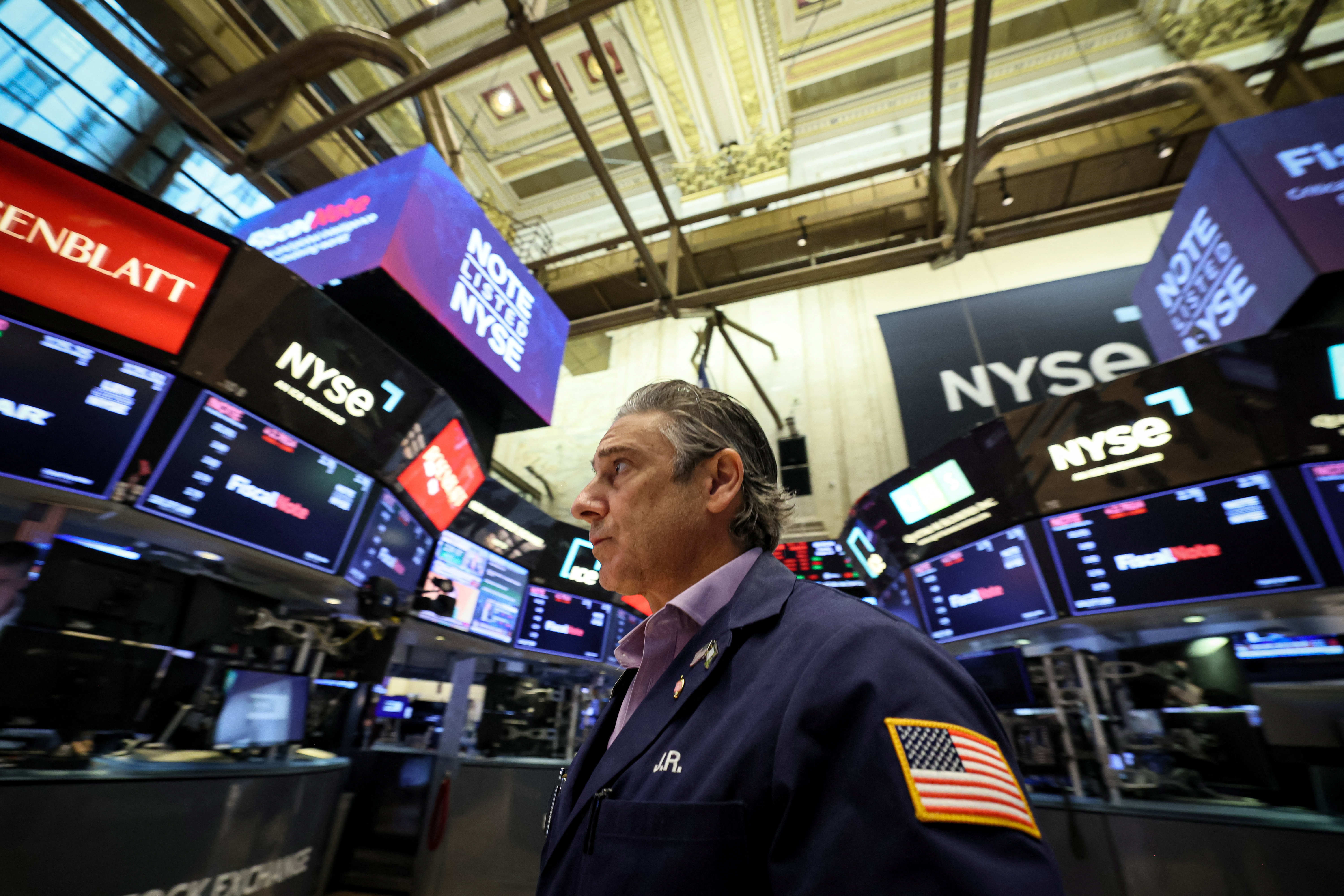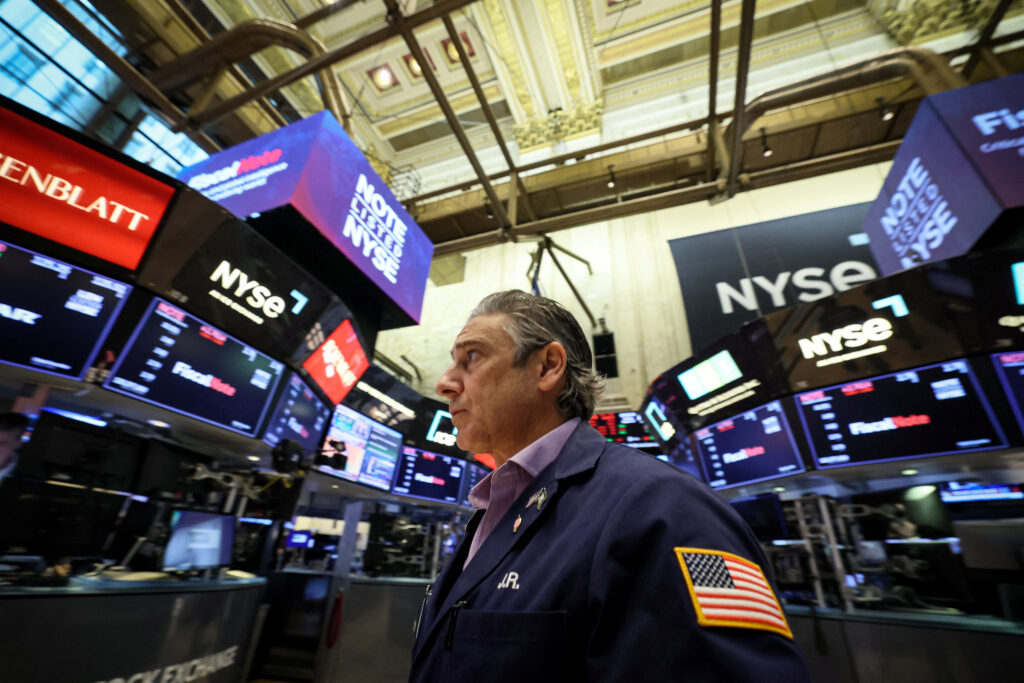
Traders work on the floor of the New York Stock Exchange (NYSE) in New York City, U.S., August 15, 2023. REUTERS/Brendan McDermid/File Photo Acquire Licensing Rights
NEW YORK, Oct 2 (Reuters) – Strong upcoming earnings results could reverse the decline in mega-cap technology and growth stocks, which have been hammered by the rise in Treasury yields and are trading at their cheapest levels in six years by one measure, according to Goldman Sachs strategists.
The so-called Magnificent Seven group of megacap stocks -Apple, Microsoft, Amazon.com, Alphabet, Nvidia, Tesla, and Meta Platforms – have fallen 7% over the last two months, compared with a 3% decline in the broad S&P 500, as Treasury yields jumped more than 60 basis points to 16-year highs.
Those declines have pushed mega-cap forward price-to-earnings ratios down by a collective 20% over the last two months, leaving them trading at their largest discount to the market based on long-term growth since January 2017, Goldman Sachs said in a note dated Oct. 1. At the same time, the group is expected to post sales growth of 11% in the third quarter, compared with a 1% improvement for the S&P 500, the firm noted.
The mega caps in aggregate have beaten consensus sales growth expectations 81% of the time and have outperformed in two-thirds of earnings seasons since the fourth quarter of 2016, Goldman’s strategists said.
“The divergence between falling valuations and improving fundamentals represents an opportunity for investors,” they wrote.
The bullish call on tech stocks comes as investor sentiment for equities overall has flatlined, which historically has been a contrarian indicator of more gains ahead, Savita Subramanian, equity and quant strategist at BofA Global Research, wrote in a note Monday.
The average recommended allocation to equities in balanced funds remained unchanged at 53% in September, below the benchmark of 60%, Subramanian noted. Falling sentiment has historically been a signal of broad gains over the following 12 months, she noted.
The S&P 500 has dropped nearly 5% over the last 10 trading days but remains slightly more than 11% up since the start of the year.
“We expect the S&P 500 to rally into year-end, with more upside in the equal-weighted index,” Subramanian wrote.
Reporting by David Randall; Editing by Ira Iosebashvili and Mark Potter
: .


